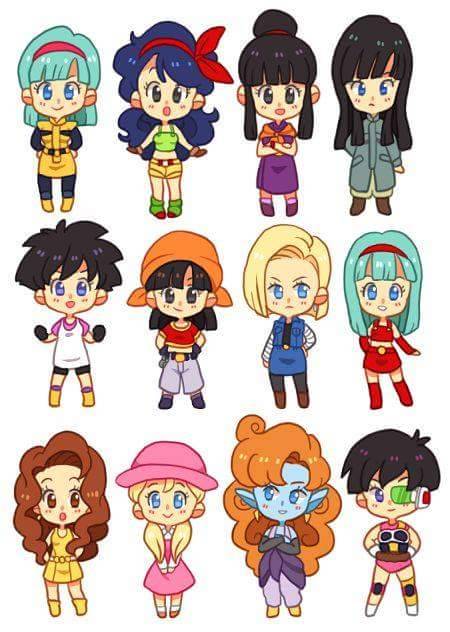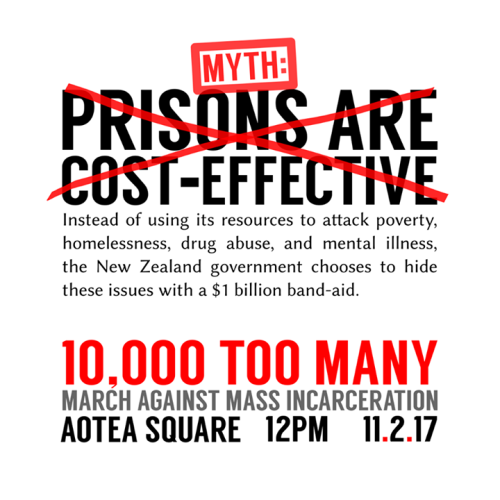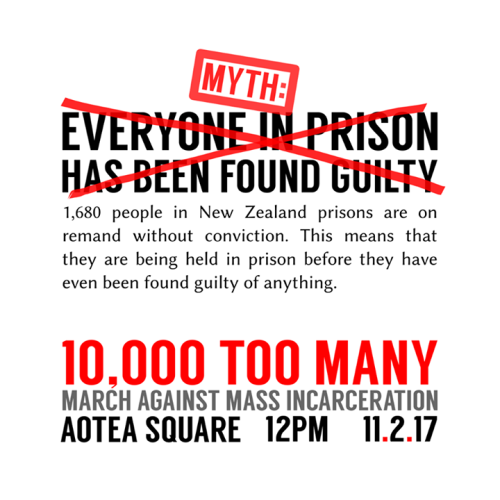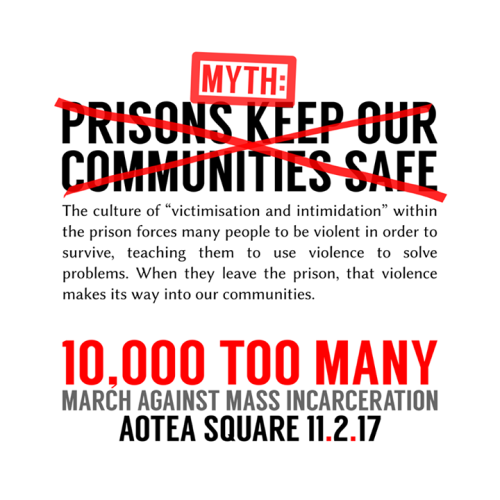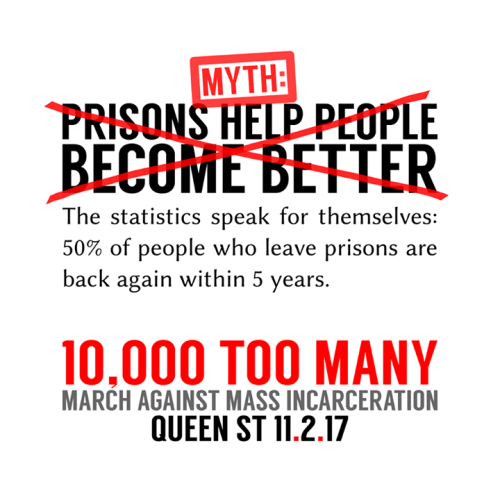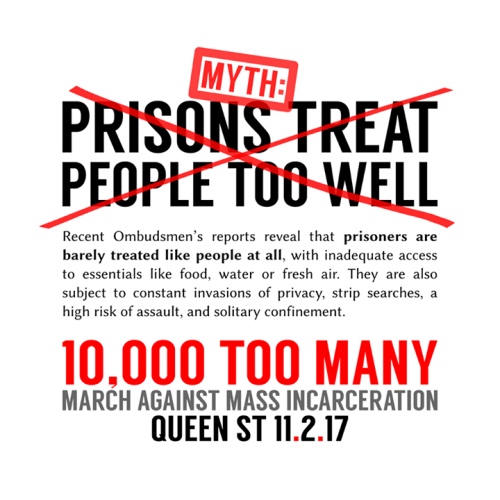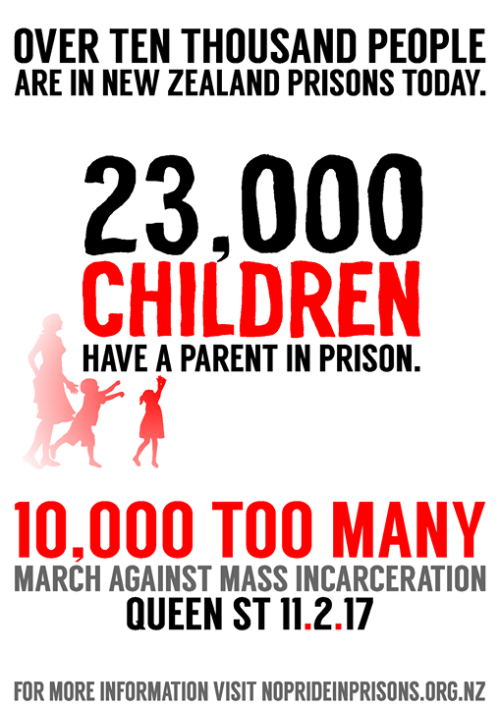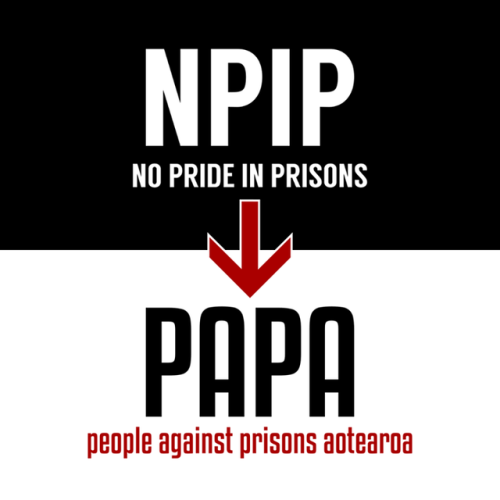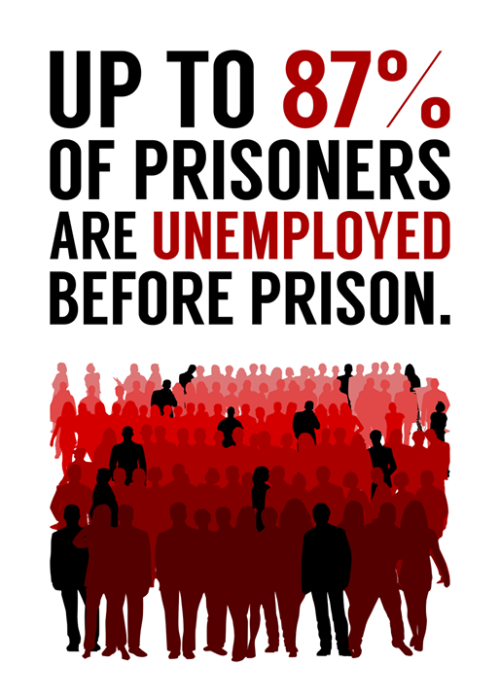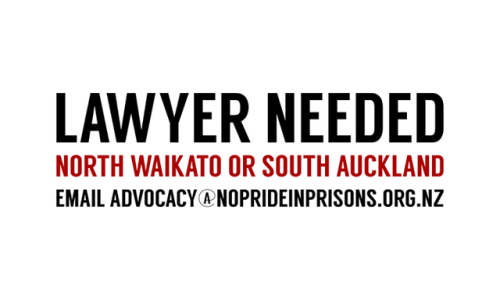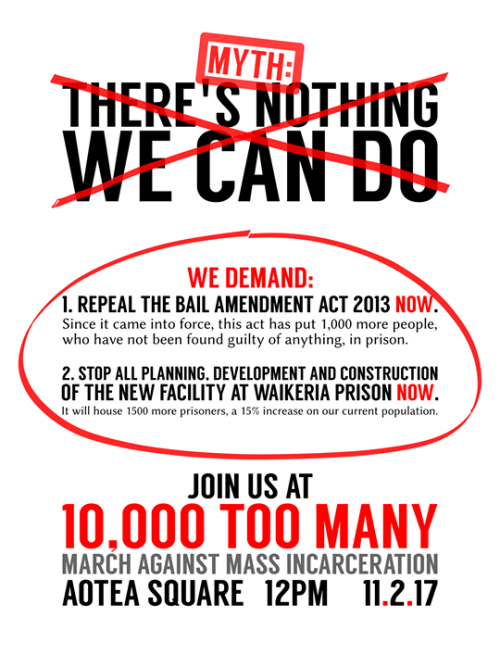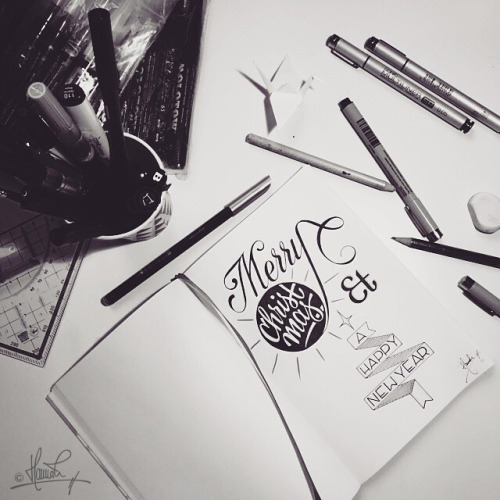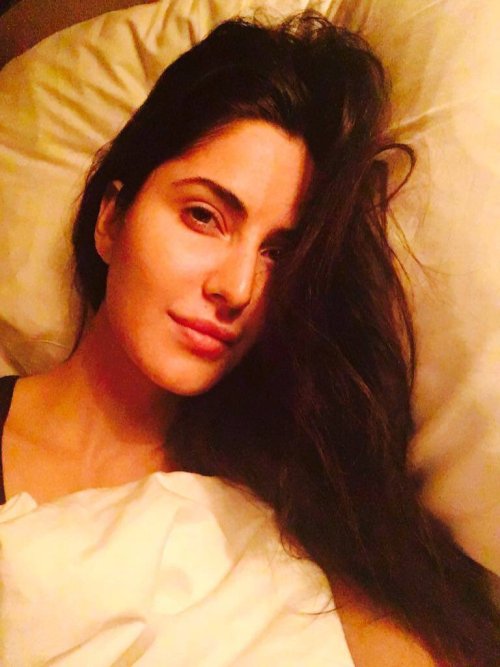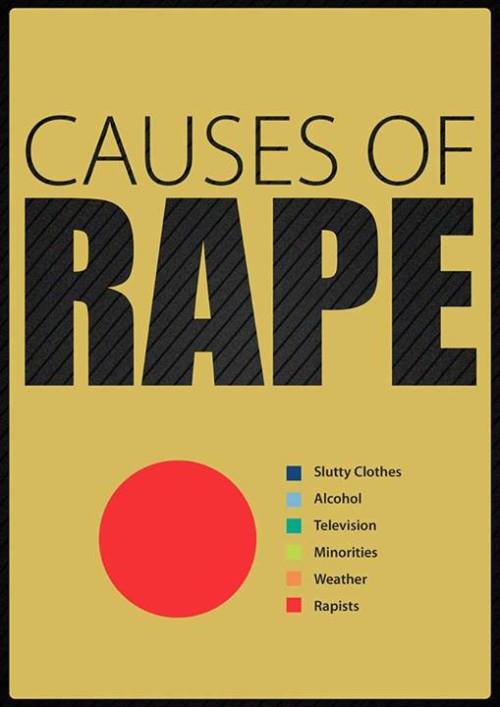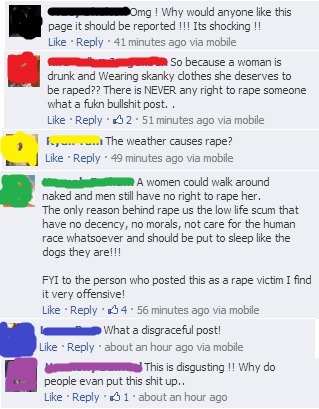#facebook post
Happy international women’s day.
Original art hereby@fudoughnuts
Thanxjonk-in-the-box for posting the source of this pic.
And Thanks fudoughnut for your awesome artwork.
Cheers.
Post link
MYTH: “PRISONS ARE COST-EFFECTIVE”
In 2017, the New Zealand government has budgeted $1 billion for the running of prisons, as well an additional $1 billion for prison construction and expansion over the next few years. What could this money do for impoverished communities across Aotearoa? For the 23,000 children with a parent in prison? For education? For housing?
While the government eagerly increases its spending every year on an unjustifiably cruel system, it ignores the widespread poverty in New Zealand that drives people into criminalised activity. The prison population could be drastically reduced by dealing with fundamental problems in society, such as inequality and racism. Instead of using its resources to attack poverty, homelessness, drug abuse, and mental illness, the New Zealand government chooses to hide these issues with a $1 billion band-aid.
Prisons fail to provide a real solution to our social problems – they address misery and hardship by creating even more misery and hardship. http://ift.tt/2jHQODk
Post link
MYTH: “EVERYONE IN PRISON HAS BEEN FOUND GUILTY”
1,680 people in New Zealand prisons are on remand without conviction. This means that they are being held in prison before they have even been found guilty of anything. The recent “tough on crime” reforms, such as the Bail Amendment Act 2013, have made this even worse. Between September 2013, when the bill was introduced, and September 2016, 77.49% of the increase in the prison population was due to a rise in the number of people being held on remand.
This increase in the prison population, now at 10,000, has created an overcrowding crisis. This crisis has been used to justify housing multiple people in tiny cells and denying them access to fresh air. Right now, it is being used to justify the building of a new facility at Waikeria Prison, which will house 1,500 more prisoners. Since this bill came into effect, the remand population alone has increased by more than 1,000 people!
The current overcrowding crisis is the result of a cruel piece of government policy. While the New Zealand Bill of Rights Act states that a person must be presumed innocent until proven guilty, 1,680 prisoners are being punished as though they had been found guilty anyway. The government now wants to justify degrading and torturing 1,500 more prisoners with this blatant breach of human rights! This is unacceptable. We demand the repealment of the Bail Amendment Act. http://ift.tt/2kmNt9C
Post link
MYTH: “PRISONS KEEP OUR COMMUNITIES SAFE”
Prisons target specific communities much more than others. Those who are imprisoned are more likely to be poor, Māori, mentally unwell, and intellectually disabled. Māori experience discrimination at every stage of the criminal “justice” system, and are more likely to be apprehended, prosecuted, convicted, and sentenced to prison. Māori make up only 15% of the total New Zealand population but over 50% of the prison population.
In what way are these communities being kept safe when parents, children, whānaunga, lovers, friends, caretakers and wage-earners are being locked in a cage away from their communities and tortured?
In fact, prisons actively endanger these communities. It has been found that those who leave prison often come out more violent than before. People who go to prison for non-violent offences are much more likely to commit violent offences when they leave. The culture of “victimisation and intimidation” within the prison forces many people to be violent in order to survive, teaching them to use violence to solve problems. When they leave the prison, that violence makes its way into our communities.
Former prisoners are also much more likely to be homeless and unemployed. As a result, people who have been in prison and their whānau are left with not only emotional and physical damage, but also an increased likelihood of being poor. Families that have or have had a member in prison face a vicious cycle of poor health, poor education, inadequate housing, and mental illness, which leads to more members of their community being imprisoned!
These families are caught in a cycle of misery that prisons help to reproduce over and over. Prisons not only fail to keep communities safe, but actively contribute to making communities unsafe by creating widespread fear, violence, homelessness and impoverishment. http://ift.tt/2ks01iB
Post link
MYTH: “PRISONS HELP PEOPLE BECOME BETTER”
In light of these inhumane conditions, we must ask: how does exposing people to fear, assault and isolation make them better people? Does this really teach people who have hurt others how to change? And if Corrections believes the way to keep the most vulnerable prisoners safe is to lock them in solitary, effectively exposing them to yet another form of torture, are prisons not just punishing people for the sake of punishing them?
The statistics speak for themselves: half of people who leave prisons are back again within 5 years. When people do find rehabilitative services in prison useful, their personal development isn’t because of imprisonment but in spite of it. None of the services provided to prisoners require them to be imprisoned in order for them to be successful. People come out of prison scarred, not healed. http://ift.tt/2jSkT18
Post link
MYTH: “PRISONS TREAT PEOPLE TOO WELL”
Recent Ombudsmen’s reports have revealed that prisoners are not even treated adequately, let alone well. They have found that the drinking water in some New Zealand prisons is discoloured, and that some prisoners are not even provided with drinking cups. Prisoners usually have their final meal of the day at 4pm, meaning that it is common for them to go 16 hours without any food.
The Ombudsmen have also discovered that many prisoners are put in double-bunked cells far too small to accommodate two people; many do not get daily exercise or fresh air; many prisoners have to eat their meals next to an uncovered toilet; and many prisoners do not have regular access to clean clothing and sheets.
The reports have uncovered that prison staff are able to watch some prisoners, even in their most intimate moments – getting dressed, using the toilet, and washing themselves. This is supposedly done in the name of safety, but instead makes prisoners feel degraded.
Every prisoner is also required by law to be strip searched when they enter and leave the prison, as well as on many other occasions. During a strip search, officers have full authority to invade the prisoner’s body, including “lifting and raising” their “fat, genitalia, and breasts.” Despite how invasive this is, nothing is found in 99.59% of strip searches. Strip searches amount to senseless sexual assault and nothing else.
Although strip searches are supposed to prevent harm, the Ombudsmen have nonetheless found an extremely high level of unreported prisoner-on-prisoner assaults. Many prisoners feel unsafe going about their everyday lives in prison. Referring to both other prisoners and prison staff, many prisoners describe the culture of the prison as one of “victimisation and intimidation.”
Those who are most at risk of this violence are often placed in conditions akin to solitary confinement, where they may be stuck in their cell for up to 23 hours a day and cut off from contact with others.
These conditions have been defined as a form of degrading treatment according to the United Nations Convention Against Torture. This reveals that not only are prisoners not treated “too well,” but that they are barely treated like people at all.
http://ift.tt/2kkG2lDhttp://ift.tt/2jwD8WD
Post link
On the 11th of February No Pride in Prisons, alongside other organisations across the country, will be holding a march against expanding prisons, overcrowding, and the unjust punishment system! The prison population in Aotearoa has just reached 10,000 for the first time. The recent Ombudsman’s reports have revealed that prisoners are exposed to constant threats of violence and subjected to practices that amount to torture. There is no reason to keep locking more people away from their loved ones in inhumane conditions. It doesn’t help them become better people, and it doesn’t keep their communities safe. The government has continued to ignore the growing evidence that prisons don’t do what they’re supposed to. Over the next few years, $2.5 billion worth of prison construction and expansion has been planned, including a new prison in Waikeria. This year, the New Zealand government budgeted one billion dollars for the Department of Corrections. What could one billion dollars be doing for impoverished communities across Aotearoa? For the more than 20,000 children with a parent in prison? For education? For housing? For the 1,000 people who are going to be put in Waikeria? It is clear that at this point the government cannot justify its commitment to the existing prison system. This is nothing more than incarceration for incarceration’s sake, and it is unacceptable. We believe that all of us have a reason to oppose the locking up of 10,000 people away from their communities. We invite you to come to 10,000 Too Many, a march against mass incarceration. We’d really like to see you there! EVENT LINKS: FACEBOOK: https://www.facebook.com/events/1295188543879616/ EVENT SITE: https://sites.google.com/view/10000toomany/home
Post link
Information released to No Pride in Prisons under the Official Information Act shows that up to 87% of prisoners were unemployed before entering prison. On the other hand, the unemployment rate across all of New Zealand is 4.8 percent.
This only further proves what we already know: poor people go to prison. The everyday misery of poverty puts people in extremely desperate positions to make ends meet. The stress breeds addiction, health issues, and abuse that tear apart communities.
We also know that Māori make up the majority of people who end up in prison, and are more likely to be poor. Economic racism and colonisation put Māori at even greater risk from the severe harms of imprisonment.
Capitalism is based on an elite class benefiting from the poverty, unemployment and misery of the many. By keeping wages and benefits low, the government ensures that there will always be people desperate to accept bad working conditions.
When people act out as a result of their miserable conditions, they are used as a scapegoat. They are held responsible and put in prison, while the social system that pushed them into prison is ignored.
Prison never has and never will be used to address “crime”. It is used to lock up poor people and secure the privilege of the elite. The prison props up capitalism and colonialism at the expense of Māori and the poor. http://ift.tt/2uvyDBT
Post link
Kia ora whānau,
A prisoner that we work with has come into some trouble and needs a lawyer.
He was recently assaulted by another prisoner at Spring Hill and had to defend himself. Although he tried to resolve the conflict without violence, Corrections has decided to charge him.
He feels that this is extremely unjust. He would like a lawyer present at his disciplinary hearing, to help him make his case.
This is beyond the scope of what our volunteer advocates can do. We need some help getting him representation.
If you know any lawyers in Northern Waikato or South Auckland who’d be keen to help out pro bono, please point them in our direction!
Email us at [email protected] or contact us here on Facebook. http://ift.tt/2wvhlX0
Post link
MYTH: “THERE’S NOTHING WE CAN DO ABOUT IT”
The New Zealand government has put $1 billion into expanding our prison system in the next few years. Much of that money hasn’t been spent yet, with the construction of new facilities like the one at Waikeria only being scheduled to start in 2018. That’s $1 billion that could be saved if we make it perfectly clear that enough is enough and we will not put up with pouring any more money into this broken system. More importantly, that’s over 1,500 people who might escape the horrors of imprisonment.
2017 is an election year, and no matter what happens, it will be a year of political shake-ups and new leadership. Now is the time to act and make clear that the enormous human and financial waste that is our prison system is unconscionable and cannot continue.
Our demands are:
1. The immediate repeal of the Bail Amendment Act 2013. Since it came into force, this act has put 1,000 more people who have not been found guilty of anything in prison.
2. The immediate end to all planning, development and construction of the new facility at Waikeria Prison, which will house 1,500 more prisoners.
We believe that all of us have a reason to oppose the imprisonment of 10,000 people. We invite you to march with us on Queen Street, on February 11, 2017 at 12pm. Help us to make it known that we will not accept the government’s reckless disregard for people’s lives. With the prison population at a record high of 10,000, and the government planning further expansion, we must make our voices heard now. Urgent action is required to stop all the injustices of mass incarceration.
How many are suffering unnecessarily? 10,000 TOO MANY!
How many more will we leave to this fate? NOT ONE MORE! http://ift.tt/2kgHX7w
Post link
You ever go out of your way to like the original post because you relate but don’t like the person who shared it?…. Just me?…okay then

